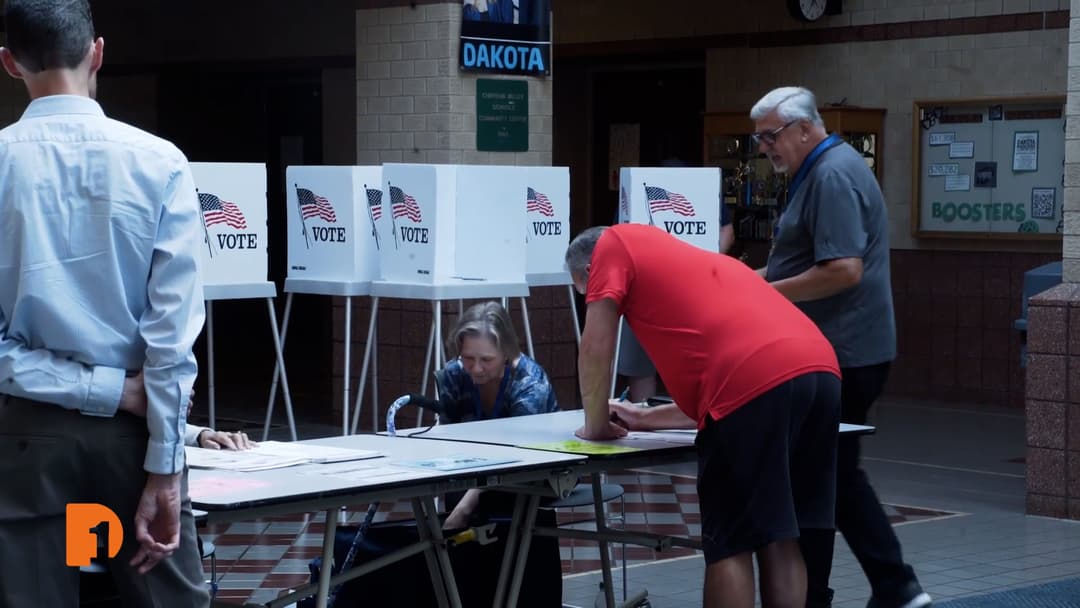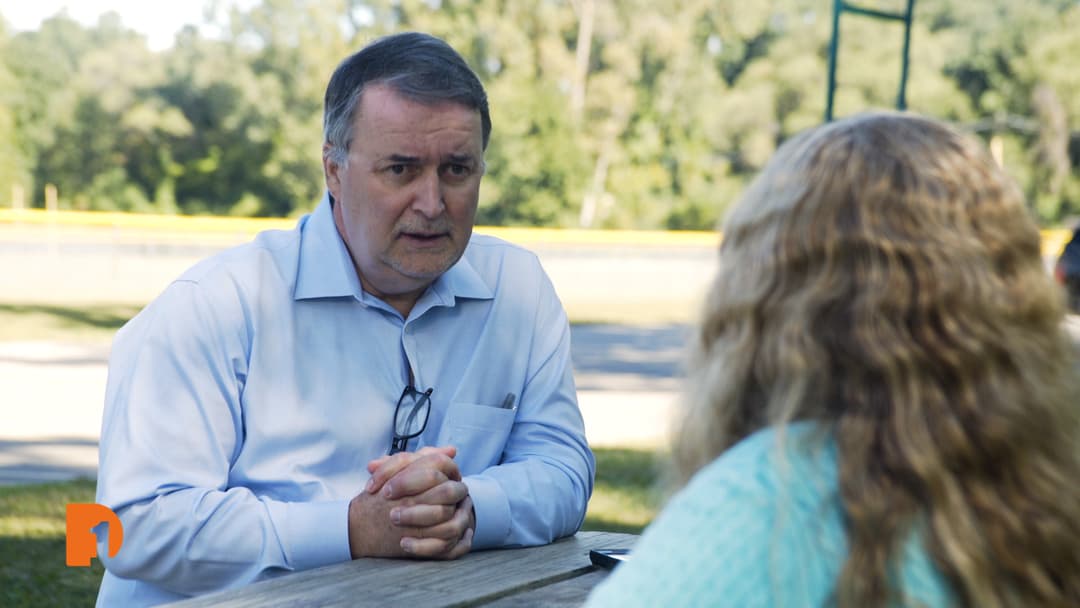
Where do candidates stand on recreational marijuana?
Jul 30, 2018
Medical marijuana has been legal in Michigan for 10 years. In November, voters will get to vote on legalizing recreational marijuana statewide. Six of the candidates running for governor sat down with reporters from the Detroit Journalism Cooperative to ask them what they thought about a variety of issues including recreational marijuana, and what it would mean for the state should it become legal.
Stephen Carmody from Michigan Radio posed the question to the candidates in attendance.
Brian Calley (R):
Stephen Carmody: Michiganders vote on recreational marijuana this fall. What is your thoughts on that? If it does pass, how will your administration implement it?
Brian Calley: I oppose it. I will be voting against it. If it does pass, I will faithfully respect the will of the voters and implement it the best I can. We have other controlled substances in the regulatory system, so it is very doable to regulate it. My main concern is not one about where I think marijuana would be the worst thing ever. It is just that we already have a problem with filling all the jobs out there today. I just think this is going to make it worse. People do not maybe realize that. Just because something is legal does not mean that you can use it and still qualify for the job. There are a lot of jobs that people, if they become users, will take themselves out of commission for. Having another mind-altering substance out there kind of with the endorsement of the state or government on it I think is a bad thing. If it passes though like tobacco, alcohol, and those sorts of things; we will have to come up with a regulatory system in order to make sure that we keep it as far away from kids as we can.
Patrick Colbeck (R):
Stephen Carmody: This fall, Michiganders vote on recreational marijuana. What’s your feeling on that? Do you support it? Are you opposed to it? And if it does pass, how will your administration implement it?
Patrick Colbeck: Yeah, I was opposed to the expansion of medical marijuana provisions. I thought what the people put into the statute was fine, just the two and a half ounces, 12 plants. That was reasonable because when you’re talking about marijuana, it’s still a controlled substance. You can’t use the bank for it so it’s a cash only business. I’d rather have people walking around with 20s than having them walk around with Brinks cars, which is what happened under the medical marijuana expansion.
At the time medical marijuana was expanded, against my vote, I was on the senate judiciary committee. I heard all the testimony around it. And I opposed it because there’s so much money being thrown into this business that I think the election’s being bought. I think the ballot’s being bought. I think people are not given the full story about what the impacts are. They’re only being talked about what the positives are, and everybody loves new tax revenue and they’re pitching that. They’re not focused on what the increased expenses are going to be.
So this recreational marijuana ballot initiative, I’m opposed to for a variety of reasons. Number one, we’ve got issues with folks driving under the influence of alcohol. I don’t want to add people driving under the influence of marijuana to that equation. Second of all, I’ve got 31,000 job openings in my district right now. We want to grow our economy. If we go off and pass recreational marijuana, people are going to have to pass drug tests to get employment. That number that I have of open job openings here in my district is going to go up. When that number of job openings goes up, the number of people on government assistance is also going to go up because they can’t find a job because they can’t pass a drug test. That is a bad recipe for Michigan’s future from my perspective.
Having said that, if they do pass it and they vote to pass it and get it so that we’re a recreational marijuana state, we’ll find a way to make it work. we’ll find a way to make it safe for everybody. But it puts in jeopardy a lot of the things that we would like to do for our economy and for the quality of life here for Michigan residents.
Jim Hines (R):
Stephen Carmody: Actually, I want to focus more on recreational marijuana, since we’ll be voting on that in the fall. Michiganders voting on recreational marijuana this fall. What’s your opinion? Do you think that that should pass? Are you against it? If you’re for it, why? If not, why not?
Jim Hines: So let me start off by saying I support medical marijuana. I have dozens of patients that have gone off all of their regular chronic medications taking medical marijuana. So I support that. I think that there needs to be regulations and further research to know exactly why the CBD component of marijuana seems to work in so many different illnesses and problems, not just chronic back pain and so forth.
Recreational marijuana is a different story. I don’t support recreational marijuana. When it goes to the ballot and if the voters of the state were to approve it, then I would support it. However, I think that it would need to be regulated. We still need the research to know what’s the incidence of lung cancer. When you’re on a heart medication and you’re on recreational marijuana, does that medication need to be adjusted? What’s the proper dose?
There are so many questions that have to be answered with recreational marijuana. In addition, just practically, how do you keep it away from minors? How do you deal with school bus drivers on marijuana? They should be clean of marijuana, or police officers that stop someone that is driving erratically and they test positive for marijuana, how do you deal with that and how do you keep that from happening? So there’s a lot of regulation issues that have to be discussed.
Abdul El-Sayed (D):
Stephen Carmody: As you pointed out Michiganders will be voting on legalizing recreational marijuana this fall. What’s your opinion of it not only as a person who will be voting on it but s a physician?
Abdul El Sayed: Yeah. I believe that we need to legalize marijuana. I’ve never smoked marijuana just as a matter of personal choice, but I do believe that there are a lot of reasons why we’ve got to get out and we’ve got to legalize this.
1. It’s a civil rights issue. If you are black in this country you are 3.3 times as likely to be arrested for marijuana possession just by no higher likelihood of use. And it is a big reason why that plus the war on drugs it is a big reason why we have seen a tearing apart of social fabrics in low income African American communities because of the system of laws on the books and the way that we police. It’s not right. We have to upend it.
I intend when legalization happens, I intend to both pardon and to push legislation to expunge records of non-violent offenses for marijuana possession. That’s number one.
2. I’m a doctor. I remember seeing a patient, a 10 year old girl who had a seizure disorder and tried all the medications with all the side effects that came with them and the thing that worked was marijuana. The thing is that we don’t actually know how to use it in what amount, in what delivery mechanism, in what regimen of use because it remains illegal for recreational use. And so we’ve got a responsibility to better understand cannabis as a medication and I don’t believe that happens until we legalize it.
3. There is a lot of money that the state could be making on excise taxes on the back end, $125 million that goes into investing in the things we talked about; schools and roads. We got a responsibility to make sure we can do that.
4. Right now, there is a lot of illegal activity, real illegal activity, dangerous activity that happens because we are pushing marijuana use and sale underground. And all of that goes away when you legalize it.
5. I think I’m on 6. Now, I just don’t believe that marijuana is any more dangerous medically than alcohol and yet we regulate alcohol in a particular way and we regulate marijuana in a different way. And I just believe that we’ve got a double standard and that double standard doesn’t really make sense.
And so, I fully support legalization. But beyond that I do believe Michiganders are going to legalize. We need a governor who is thinking about how to make sure that we don’t have a full on corporate take over of the marijuana trade pulling a lot of money out of low income communities where it had been in the past even if illicitly. Second, we have a really good opportunity to be able to stand up the ability to do some of this research in Michigan and as somebody who was NIH funded as a researcher I know how to do that and I think we’ve got an opportunity to set that up so that we are creating the kind of medical knowledge that benefits people in the state.
So I look forward to a moment when the state stands up and does the right thing and legalizes. And I think we’re in a good position to make sure that the use and the sale is safe and that the best benefit comes out of it.
Stephen Carmody: Do you have any concerns about the potential social and health issues that may arise by having a broader access to marijuana?
Abdul El Sayed: Sure. Look, we’ve got to make sure that marijuana doesn’t fall into the hands of children and we’ve got to make sure that people are not driving while intoxicated. The fact is keeping it illegal doesn’t make that that much easier, right? And a lot of the research shows some pretty interesting findings. For example, the big question has been well, if you make marijuana legal is marijuana a gateway drug? And it turns out it’s not actually the use of marijuana that is a gateway it is the doing of something illegal. And so once somebody has done something illegal and right now, recreational use of marijuana is illegal, probably that they are going to do something else illegal becomes a lot higher because you’ve already broken that barrier.
So it’s not the drug itself. It’s not marijuana itself. It is the fact that we’ve created this artificial boundary by which marijuana is outside the bounds of legality. And so I think that there is a lot of potential benefit actually in terms of being able to prevent some of the other harder drug use and being able to actually be thoughtful about how we regulate marijuana from falling into the wrong hands in children. Or its use when people are operating heavy machinery or cars that I think it’s a lot easier once you’ve made it illegal.
Shri Thanedar (D):
Stephen Carmody: This fall, Michiganders will be voting on legalizing recreational marijuana. Would like to know what your thoughts are on that. And if it was to pass, what would you do as Governor to make sure that this actually works?
Shri Thanedar: Well, first of all, I am fully supportive of the ballot proposal for recreational marijuana. Once it passes, I would use my authority and my power as a governor to pardon those who are in prison, nonviolent offenders for small possession charges. I would commute those sentences, I would expunge their records, I would provide them the skillset they need to return to society and become productive members of the society.
So, my focus is going to be on expungement. I will ensure that public safety is maintained while we allow entrepreneurship and I will make sure that big corporations from out of state do not come and take advantage of this new law. But local entrepreneurs are able to take advantage of this new opportunity and I would like to economic prosperity to come as one of the – growth should be in the cannabis industry.
Stephen Carmody: Do you have any concerns about the potential effects societally on Michigan of allowing recreational use?
Shri Thanedar: I believe that marijuana should be regulated in a manner similar to alcohol and there should be strict guidelines in terms of the levels of cannabis in the bloodstream. And we need to use science to ensure that we set appropriate regulations and standards so that public safety is maintained.
Gretchen Whitmer (D):
Stephen Carmody: This fall Michiganders vote on legalizing recreational marijuana. What’s your thoughts on that? And if it passes, how would you as governor make sure that the rollout works?
Gretchen Whitmer: The second part of that question is really important and I’m grateful that you asked it. I’m going to be a yes vote on the initiative. In 2008 after years of trying to get stem cell research permitted in Michigan, Joe Schwarz, a Republican and I decided with a big group of people that we needed to go straight to the voters and get it passed. That same year medical marijuana was on the ballot as well. I’ll tell you, I supported both. It was long before it was fashionable to support any marijuana changes.
But I supported both because when I was in my first term in the legislature my mom got sick and died of brain cancer and I took care of her at the end of her life. That experience is what drove me to push for stem cell research here in Michigan so we could be in the race for cures. But also to embrace medical marijuana so that she could have had some relief. She died before it passed but I think that was really important at the time.
And our leaders failed the people. Our leaders frequently ignore the will of the public. Like when we rejected that emergency management law, they just pushed it through again with a gimmick to override the will of the people. That happened on medicinal marijuana. They did not, Mike Cox and Bill Schuette never wanted to make it successful and so they did not promulgate rules to ensure that it was and the will of the people was respected.
That’s why part two of your question is really important. When this passes, because I believe it will, I will take it very seriously and push forward to make sure that we do it right. So it stays out of the hands of kids, to ensure that the dollars actually go where they’re supposed to, into our infrastructure and our schools. To promulgate rules so there’s not this huge grey area that gets in the way of effectuating the will of the people. We have a duty to respect the people when they vote and to carry forward their wishes. That’s something I’m absolutely committed to.
Stephen Carmody: Any concerns about the potential social effects of legalized recreational marijuana?
Gretchen Whitmer: Oh absolutely. There’s always concern and the biggest concern is insuring that it stays out of the hands of kids, you know as their brains are developing. But there is so much unknown around marijuana because it’s been illegal for so long that the studies haven’t moved forward the way that we really should have. Some of the stuff they’re doing across the world is really encouraging. It can be used as an exit drug. We’ve got an opioid epidemic here in Michigan. I think that there are so much unknown but certainly that creates a lot of concerns as well.
More on the Detroit Journalism Cooperative Gubernatorial Candidate Interviews:
This year, Michigan voters will be selecting a new governor, who will be facing important issues that will determine the health and vitality of the state for years to come.
The first step in the electoral process is the state primary on August 7, when the standard bearer for both the Democratic and Republican parties will be determined.
The Detroit Journalism Cooperative invited all major party candidates to the Detroit Public Television studio for individual, hour-long interviews with a panel of its reporters. The candidates received virtually the same questions and were able to respond at length, providing voters with a much more in-depth and contextual understanding of where each stood on the issues of importance to the state than they can glean from conventional coverage.
So please consider their opinions carefully and, most of all, vote!
Every candidate accepted the invitation to be interviewed except for Attorney General Bill Schuette.
Stay Connected
Subscribe to One Detroit’s YouTube Channel and don’t miss One Detroit on Thursdays at 7:30 p.m. and Sundays at 9 a.m. on Detroit PBS, WTVS-Channel 56.
Catch the daily conversations on our website, Facebook, Twitter @OneDetroit_PBS, and Instagram @One.Detroit
Related Posts
Leave a Reply
Your email address will not be published. Required fields are marked*





























